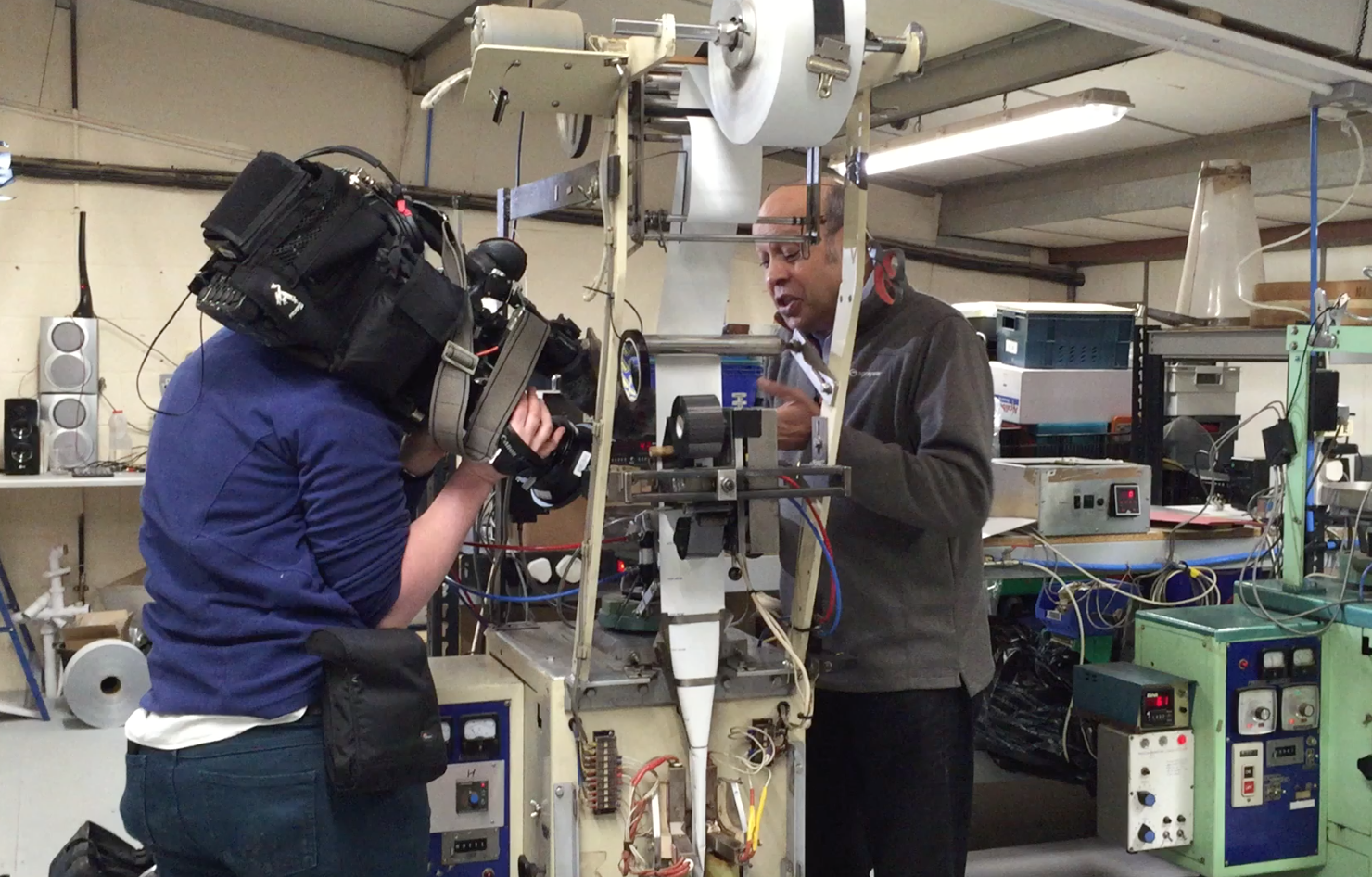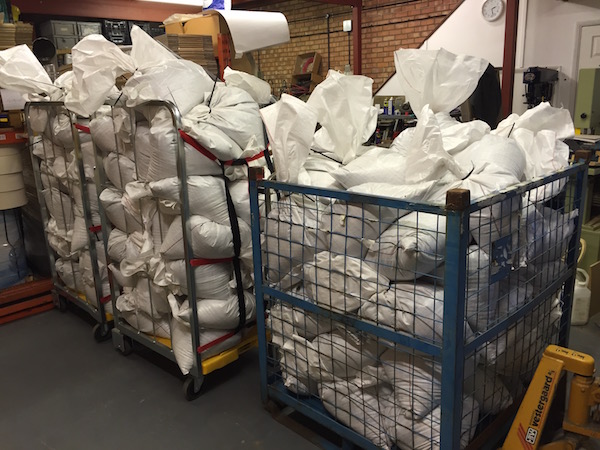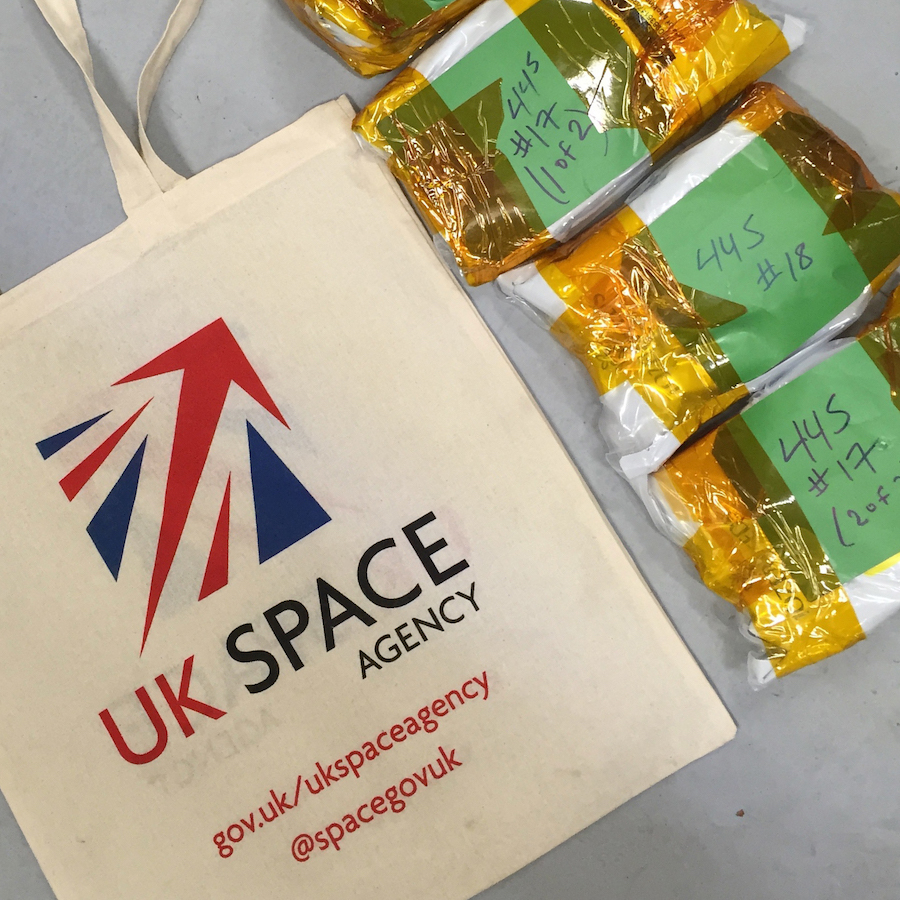Astronaut Tim Peake, the Royal Horticultural Society (RHS), the UK Space Agency (UKSA) and six hundred thousand children from 8,600 schools all participated in an experiment to determine whether Rocket seed that had spent six months in space was adversely affected or had enhanced properties.
A bag of Rocket seed (Eruca sativa) was taken up into space by Tim Peake onto the European Space Station for six months. When it returned to Earth it was packed by us into sachets containing exactly 100 seeds. Another bag of exactly similar seed was also packed in the exact same way. Both batches were marked anonymously, then one sachet from each batch was sent to a school.

The BBC visited us to film the packing process…
You might recognise the presenter – Pallab Ghosh, Science Correspondent for the BBC.
Under carefully controlled experimental conditions the seed was grown and various measurements taken and subsequently analysed – all by the pupils. In all, more than 320,000 individual measurements were taken making the experiment scientifically robust and one of the most detailed of its kind ever to be undertaken. This was a perfect platform for pupils to learn techniques of gardening, scientific experimentation, mathematics & statistics.

This is some of the wildflower seed we packed into 750,000 sachets as advertised on the BBC Countryfile programme
And Seed Packers packed the seed!
Want to know the results?
Check out; https://www.bbc.co.uk/news/science-environment-37826704

